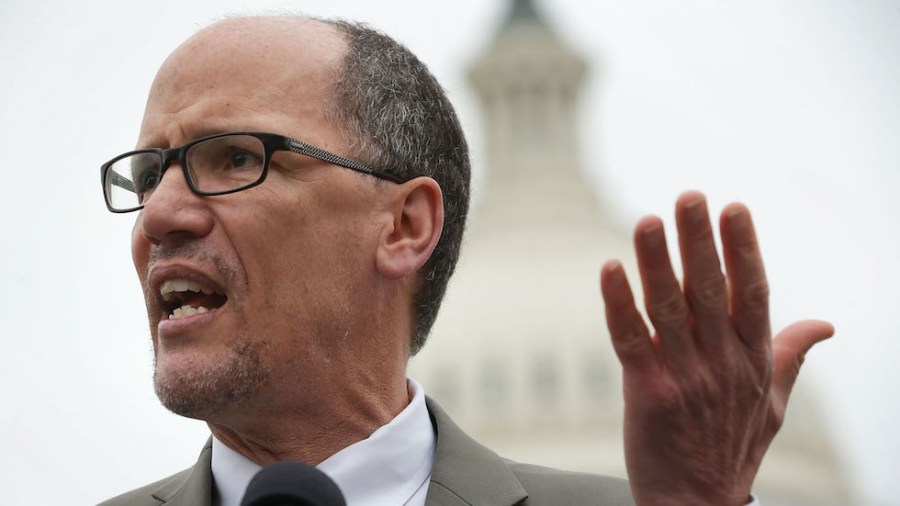Democrats met Friday afternoon to kick off a unity commission tasked with repairing the party’s divisions after a contentious 2016 primary and giving more control to grassroots activists.
The Unity Reform Commission meeting in a basement conference room of a Washington D.C. hotel had been a long time coming. Democrats across the country have been anxious to start the hard work of reevaluating the party in light of its disastrous 2016 losses.
No decisions were made at Friday’s meeting, as the Democratic National Committee group has seven months before it has to present recommendations to the full committee. But the 21 members began to put down their markers and lay the groundwork for the rebuilding process.
“I’m confident that the work we are going to do together will absolutely lay the foundation for the most open and transparent process of pocking our party’s next presidential nominee…and make our party more inclusive and competitive, not just at the presidential level, but up and down the ballot,” DNC chairman Tom Perez said to kick off the meeting.
{mosads}Originally planned at the party’s 2016 convention, the group is made up by people appointed by the top two Democratic candidates—Hillary Clinton and Bernie Sanders—along with some appointees selected by Perez.
Much of the time of the inaugural meeting was spent discussing the evolution of the DNC nominating rules, including some of the difficulties that the party faces in addressing Sanders supporters concerned about removing barriers to candidates outside the party establishment.
Sanders’s appointees raised some of the biggest questions about the process, questioning the wisdom behind the primary calendar. Jeff Weaver, Sanders’s presidential campaign manager, argued that party incentives that reward states that all hold nominating contests on the same day hurt insurgent candidates who don’t have the same amount of resources to compete in multiple states at the same time.
That effect, he added, will be compounded in 2020, when the wide-open presidential field will likely lead to the first Democratic primary since 2004 with more than two major candidates.
“I expect in 2020 we will have a much more open field, and it’s my view that we want to pick the best candidate, but the best candidate in many cases is not the candidate who starts with the most resources,” he said.
“If that process is perceived to be fair, we will have a much stronger candidate.”
The delegates all brought up a slew of concerns—keeping the budget transparent, limiting the power of superdelegates, amending caucus and primary rules in the spirit of openness, and funding state parties and more paid staffers. The commission has the power to offer a broad series of recommendation to the party, leaving few topics off limits.
But there’s a ton of nuance around these issues, including state law and the realities of partnering with Republicans on issues like the nomination calendar, that will complicate the calculus as the committee tries to settle on best practices.
After the two-day session in Washington, the group is scheduled to reconvene over the next few months for public sessions in San Antonio, Chicago and Las Vegas before hashing out its final recommendations by the end of the year.
While the party created the committee to resolve tensions between the Sanders and Clinton camps, all of the delegates struck a hopeful tone.
Larry Cohen, the longtime union leader who now serves as Sanders’s pick for vice-chair, described the committee’s task as looking through the “windshield, not the rearview mirror.”
“We need structures that encourage the kind of confidence that we are fighting for the future, not just resisting, and moving forward,” he added.
Jennifer O’Malley Dillon, the former DNC executive director and deputy campaign manager for former President Barack Obama, shared a similar sentiment. She noted that the GOP-led House’s recent vote to repeal and replace ObamaCare underscores the importance of their work.
“If we can get through this process and all of us believe we helped to make this party more inclusive, we’ve helped Democrats win election, we’ve help to create an opportunity for more people to plug in and understand the values as a party, we have succeeded on our mission,” she said.
“I’m excited, energized, and slightly terrified for this process, but I know it will be an important one.’”
